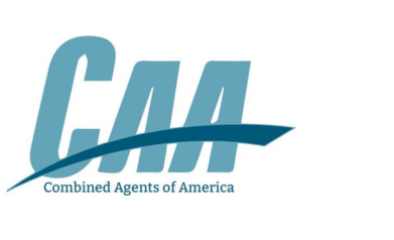Background
Responding to the 1970's market crisis when many agency contracts were being terminated, specific requirements were placed on insurance companies under Subchapter H of Chapter 4051 of the Texas Insurance Code when a company terminates an appointed agent.
As terminations and withdrawals from lines of business grew in the late 1980s and early 1990s, the provisions in Chapter 4051 were amended to provide additional safeguards for agents and their clients, including provisions which include language regarding withdrawals.
Before Termination
If you are in the process of negotiating a new or revised contract or perhaps your agency has been concerned about a particular company, now is the time to pull out your agency/company agreement. Perhaps certain provisions were negotiated years ago or there is something you can do now to protect yourself in the future.
While the code provisions outlined in our "Agency Management" section provide some protection for the agency and its clients, they do not go far enough in pinning down all issues.
The grounds for termination are not restricted in the code, and most agency/company contracts permit the company to cancel for any reason. Agents should attempt to negotiate contract provisions which limit the right of the company to terminate on the basis of volume or mix of business placed with the company. Adequate notice of what the company considers a "sufficient" volume and mix of business should be provided, and the company should agree not to terminate the agent for failure to meet such requirements, if the underwriting actions of the company preclude the agent from meeting these requirements.
Restrictions should also be placed on termination on the basis of loss ratios which don't consider the average over at least a five year period.
The termination agreement of the contract should clearly outline the issue of renewals and specific procedures should be negotiated. Issues regarding changes to existing policies or renewals occurring during the termination period should be clear. Reasonable requests for updated coverage and the right to bind such additional coverage should be addressed. Access to other company services such as appraisal should be clarified. Many of these provisions can be handled in your contract but are probably best handled in a limited agency agreement applicable to the term of the run-off period when termination occurs. Without such rights, a company can make it so difficult for an agent to do business that the protection in the code could be meaningless. Although the code addresses the commission rate for terminated agents, commissions should also be addressed in the termination provisions of the contract.
Finally, nonrenewal or cancellation notices sent out by the company should redirect the insured back to the agent. Under Texas law, a company must provide nonrenewal notices. However, the agency contract should require that both the company and agent agree to the notice wording.
Application of the Law
After an agency contract has been in effect for two years, an insurance company writing fire and casualty insurance may not terminate or suspend an agency contract unless the company gives the agent notice in writing of the termination or suspension at least six months in advance. The replacement of an existing contract with a new one does not restart the two-year threshold.
"Suspend" means the temporary cessation of business relations and refusal to accept insurance contracts submitted by the agent. Suspend does not include situations in which business is suspended immediately following a natural disaster.
The most important provision of this law is that the code authorizes an amendment or addendum to the original agency/company contract that may specify for a notice shorter than the six month requirement, if the agent agrees. Some have unknowingly signed that right away in years past.
Any company that proposes to revise the termination provisions of an existing agency agreement must first give the agent a separate written statement to summarize the impact of the proposed amendment or addendum on the agent's rights.
When Termination Is Received
Once an agent receives the six month advance notice of termination (not the 6 month prior suspension notice), no new business or increases in liability on renewal or in force business can be written by the agent for the company without the written approval of the company.
Although an insurance company is not required to accept new business or increases in liability on in-force business after notice of termination , automatic increases or additions built into policy wording or automatic coverage on newly acquired autos must be endorsed.
Also, at the time notice or termination is given the company must furnish written underwriting standards. These standards must conform to the same standards that were in effect before the company decided to terminate. Companies may furnish different underwriting standards to different agents, as long as the standards are not used to intentionally prevent or discourage renewals of terminated agents, and must be the current standards in effect for agents whose contracts have not been suspended or terminated. The intent is to eliminate a restrictive set of underwriting standards for terminated versus non-terminated agents.
Renewals After Termination
Once the six months' advance notice has expired and the actual termination or suspension date is effective, the company must continue to renew contracts for another six months. With the six month prior notice of termination and six months renewals following the actual termination date, this amounts to a full year of renewals.
The company can apply current underwriting to renewals, but the underwriting standards must be those provided at the time the notice of termination was received.
If the risk does not meet current underwriting, the company may decide to nonrenew but must give the agent at least 60 days prior notice of its declination to renew.
Billing After Termination
Terminated agents must receive commissions on renewals according to the commission schedule that was in effect for your agency before the company's decision to terminate. A terminated agent must also be allowed to pay the company under the same account current terms in effect prior to termination. A company is prohibited from requiring a terminated agent to convert from agency billing to company billing during the termination period unless the agent agrees to the conversion in writing.
Termination Due to Withdrawal or Reduction
When an authorized insurer withdraws from the state or reduces its total annual premium volume by 75% or more in any year, this action will also be considered a termination. In the event of a withdrawal or reduction, the company must comply with all the termination provisions of this article including the 6 month prior notice. In addition, the company must renew for an additional 18 months (in lieu of 6) for a total of 24 months from the date the notice of termination or suspension is received.
This "Agency Management" section does not apply to the transfer of business from one insurer in a group to another in the same group with which the agent has a contract.
Noncompliance Penalties
The laws governing agency termination are designed to protect both the agent and his insureds. The code provides for civil penalties of not less than $1,000 or more than $10,000 for violations of these provisions. In addition, the company is subject to a civil suit by the agent for damages suffered because of the premature termination of the contract by the company.
Reference Sources:
RULE §5.7009 - Texas Administrative Code
Subchapter H, Chapter 4051 - Texas Insurance Code














